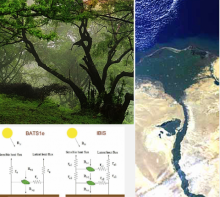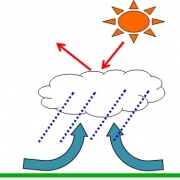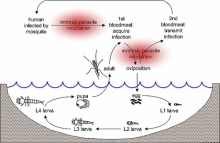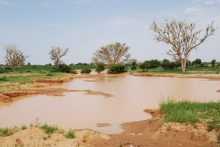Current Research Topics
Regional Climate Studies
Research in our group seeks to improve our ability to simulate the climate of different regions around the world, with the goal of providing reliable prediction of climatic variables under changing conditions. To improve our simulation of the current climate, we focus on the processes that govern interactions between climate systems and land surface hydrology, vegetation and soil moisture at regional scales. Such interactions include:
- effects of dust emissions and irrigation, which are connected to human activities, on the climates of semi-arid and arid regions of Southwest Asia and West Africa; and
- diurnal processes related to surface characteristics, especially surface radiative heating, cumulus cloud cover and convective rainfall, and the contribution of such processes to the climate of the Maritime Continent.
Our research also explores issues of climate and water resource management for one of the world’s most important watersheds – the Nile River basin. This work seeks to better quantify how available water resources will be affected by future climate change and how these resources might be most optimally divided amongst multiple and often competing users.
In all of these projects, observational data obtained from both remote sensing and ground stations are used to provide insight into the physical processes that drive regional climates. Numerical models act as pseudo-laboratories, allowing exploration of the complex feedback loops that exist between processes acting on scales ranging from tens to many thousands of kilometers.
Water and Disease
We apply knowledge of hydrology and climate systems to problems of disease transmission, particularly in Africa. Our primary focus has been on malaria, a mosquito-borne disease that affects an estimated 250 million people per year.
A main initiative of our group has been the development of a detailed agent-based model, HYDREMATS, which provides a mechanistic link between environmental factors and malaria transmission at the village scale. Current research involves the application of this model in areas including short-term forecasts of malaria epidemics, management of hydropower dams to minimize vector habitat, and assessing the impacts of climate change on malaria. A version of HYDREMATS is being adapted to simulate Dengue Fever, another important vector-borne illness.
Field activities are an important component of this research area, and we maintain research sites in Niger and Ethiopia.




